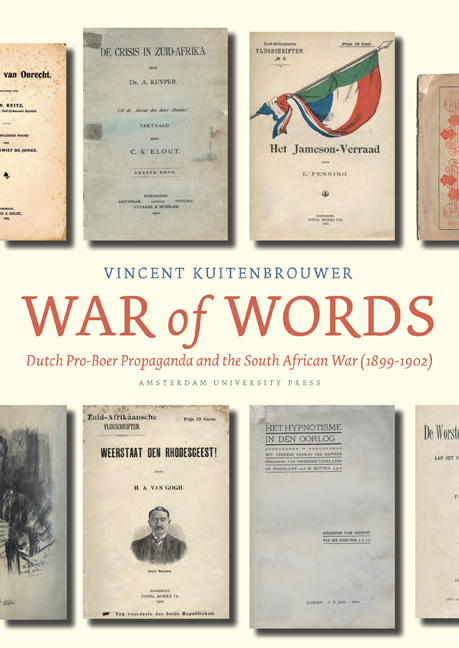Chapter 7 - ‘Whoever Wants to Create a Future for Himself Cannot Lose Sight of the Past’: Willem Leyds and Afrikaner Nationalism
Published online by Cambridge University Press: 15 January 2021
Summary
On 14 July 1904, Paul Kruger, the former president of the Transvaal, died in exile in the spa town of Clemens, Switzerland. His death can be seen as the symbolic end of the era of Boer independence after both the SAR and the OFS had been added to the British Empire. This was not the only way in which contemporaries interpreted the situation in South Africa, however. Despite the fact that they were officially citizens of the British Empire, there remained hope that the white Dutch-speaking inhabitants of South Africa would be able to unite and so become politically and culturally dominant. This optimism was also apparent in Kruger's political will, a document that was edited by one of his closest assistants, Willem Leyds. The text was addressed to all Afrikaners, calling upon them to take their future in their own hands and rebuild South Africa. In order to do so properly, it was argued, they should connect to their history, which was poured into the following famous words:
Because whoever wants to create a future for himself cannot lose sight of the past. Therefore: look into the past for all good and beautiful things that can be found there, and thereafter shape your ideals and attempt to realise those ideals for the future.
The fact that Leyds was closely involved in the publication of this document prompts questions about the ties between the pro-Boer movement in the Netherlands and the Afrikaners in South Africa after 1902. Several historians who have written about this topic emphasise that these ties lost much of their significance after the Peace of Vereeniging. The most substantial study of the post-1902 ties between the Dutch and the Afrikaners is written by Bart de Graaff, who believes that the ideas about stamverwantschap became increasingly marginalised due to domestic and international developments. In the Netherlands, he argues, the heroic image of the Boers suffered greatly after they stopped fighting. In addition, the loss of independence by the republics meant that the opportunities for trade and emigration disappeared, with the public's interest also fizzling out. In South Africa, furthermore, the development of Afrikaner nationalism led to increased xenophobia and isolation, which led to a hostile response to influences from the Netherlands and vice versa.
- Type
- Chapter
- Information
- War of WordsDutch Pro-Boer Propaganda and the South African War (1899–1902), pp. 255 - 284Publisher: Amsterdam University PressPrint publication year: 2012



